Suchergebnisse für "Factsheet%3A Energietechnologien gestalten%2C die f%C3%BCr alle sinnvoll und nutzbar sind"
IEA-Bioenergy Task 40 Newsletter
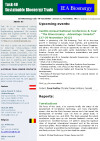
IEA-Bioenergy Task 40
Englisch, 4 Seiten
Downloads zur Publikation
BAU-LAND-GEWINN ohne Erweiterung
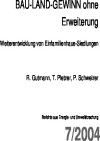
Schriftenreihe
07/2004
P. Schweizer, T. Pletzer, R. Gutmann, S. Gruber, P. Raspotnig, G. Wallner
Deutsch, 48 Seiten
Downloads zur Publikation
Sunny Energy Building
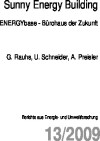
ENERGYbase - Bürohaus der Zukunft
Schriftenreihe
13/2009
G. Rauhs, U. Schneider, A. Preisler
Herausgeber: BMVIT
Deutsch, 176 Seiten
Downloads zur Publikation
IEA-GHG Guide to Membership

Herausgeber: International Energy Agency - Greenhouse Gas R&D Programme
Englisch, 3 Seiten
Downloads zur Publikation
Symposium "Haus der Zukunft"
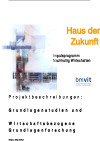
Herausgeber: BMVIT
Deutsch, 106 Seiten
Downloads zur Publikation
A perspective on algal biogas

J. D Murphy, B. Drosg, E. Allen, J. Jerney, A. Xia, Ch. Herrmann
Herausgeber: IEA Bioenergie Task 37
Englisch, 38 Seiten
Downloads zur Publikation
ROOFJET Wißgrillgasse
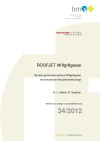
Sanierung Gründerzeithaus Wißgrillgasse mit innovativem Haustechnikkonzept
Schriftenreihe
34/2012
H. J. Ulreich
Herausgeber: BMVIT
Deutsch, 90 Seiten
Downloads zur Publikation
Mehrgeschossiger Passivwohnbau Utendorfgasse
Anwendung von Passivhaustechnologien im sozialen Wohnbau
Renewables 2010 Global Status Report
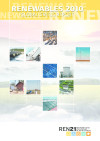
Englisch, 80 Seiten
Downloads zur Publikation
Solarenergie
Richtungweisende Aktivitäten der Programmlinie im Bereich Solarenergie werden vorgestellt.
Polygeneration
Vorstellung zweier richtungweisender Aktivitäten der Programmlinie in diesem Bereich.
IEA-EBC Newsletter, Issue 63, Juni 2016
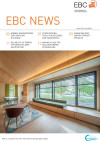
Herausgeber: IEA-EBC Programme
Englisch, 16 Seiten
Downloads zur Publikation
Forschungsforum
FORSCHUNGSFORUM informs about selected projects in the field of "Sustainable Development"
1000 Passivhäuser in Österreich
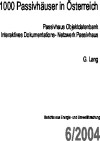
Schriftenreihe
06/2004
G. Lang
Deutsch, 102 Seiten
Downloads zur Publikation
ECO-Building - Optimierung von Gebäuden
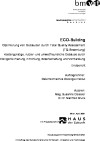
Schriftenreihe
29/2001
S. Geissler, M. Bruck
Deutsch, 45 Seiten
Downloads zur Publikation
Balancing Energy Demand with Buildings
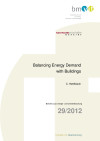
Schriftenreihe
29/2012
C. Hettfleisch
Herausgeber: BMVIT
Deutsch, 87 Seiten
Downloads zur Publikation
Virtuelle Kraftwerke für Autarke Regionen
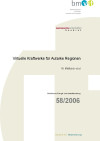
Schriftenreihe
58/2006
Manfred Mittlböck
Deutsch, 66 Seiten
Wohnstadt UM-RAUM-POTENZIALE Salzburg
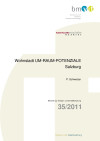
Schriftenreihe
35/2011
P. Schweizer
Herausgeber: BMVIT
Deutsch, 186 Seiten
Downloads zur Publikation
Holzbauweisen für den verdichteten Wohnbau

Schriftenreihe
34/2001
W. Winter, J. Dreyer, H. Schöberl, et.at.
Deutsch
